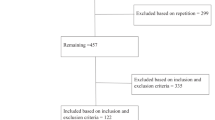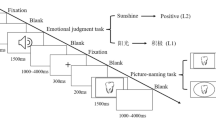
Overview
- Provides a comprehensive, timely and evaluative review of affect manifestation in bilingual individuals
- Bridges together findings from clinical and introspective studies in bilingualism with cognitive, psychophysiological and neuroimaging paradigms
- Contains novel, neuropragmatic methodology using the implementation of natural context
Part of the book series: The Bilingual Mind and Brain Book Series (BMBBS)
Access this book
Tax calculation will be finalised at checkout
Other ways to access
About this book
This volume provides an up-to-date and evaluative review of theoretical and empirical stances on emotion and its close interaction with language and cognition in monolingual and bilingual individuals. Importantly, it presents a novel methodological approach that takes into account contextual information and hence goes beyond the reductionist approach to affective language that has dominated contemporary research. Owing to this pragmatic approach, the book presents brand new findings in the field of bilingualism and affect and offers the first neurocognitive interpretation of findings reported in clinical and introspective studies in bilingualism. This not only represents an invaluable contribution to the literature, but may also constitute a breakthrough in the investigation of the worldwide phenomenon of bilingualism.
Beginning with a thorough review of the history and current state of affective research and its relation to language, spanning philosophical, psychological, neuroscientific, and linguistic perspectives, the volume then proceeds to explore affect manifestation using neuropragmatic methods in monolingual and bilingual individuals. In doing so, it brings together findings from clinical and introspective studies in bilingualism with cognitive, psychophysiological and neuroimaging paradigms. By combining conceptual understanding and methodological expertise from many disciplines, this volume provides a comprehensive picture of the dynamic interactions between contextual and affective information in the language domain. Thus, Affect-Language Interactions in Native and Non-Native English Speakers: A Neuropragmatic Perspective fosters a pragmatic approach to research on affective language processing in monolingual and bilingual population, one that builds bridges across disciplines and sparks important new questions in the cognitive neuroscience of bi- and multilingualism.
Similar content being viewed by others
Keywords
- bilingualism and emotion
- introspective studies in bilingualism
- contextual information in affect processing
- automatic affective processing
- experimental pragmatics
- decision-making in bilingualism
- neuropragmatic methodology
- basic emotion model
- appraisal emotion model
- psychological construction model of emotions
- affect and cognition
- bilingual cognition
- bilingual affect
Table of contents (7 chapters)
-
Front Matter
-
Back Matter
Authors and Affiliations
About the author
Bibliographic Information
Book Title: Affect-Language Interactions in Native and Non-Native English Speakers
Book Subtitle: A Neuropragmatic Perspective
Authors: Rafał Jończyk
Series Title: The Bilingual Mind and Brain Book Series
DOI: https://doi.org/10.1007/978-3-319-47635-3
Publisher: Springer Cham
eBook Packages: Behavioral Science and Psychology, Behavioral Science and Psychology (R0)
Copyright Information: The Editor(s) (if applicable) and The Author(s), under exclusive license to Springer Nature Switzerland AG 2016
Hardcover ISBN: 978-3-319-47634-6Published: 15 December 2016
Softcover ISBN: 978-3-319-83788-8Published: 05 July 2018
eBook ISBN: 978-3-319-47635-3Published: 28 December 2016
Series ISSN: 2945-5952
Series E-ISSN: 2945-5960
Edition Number: 1
Number of Pages: XVII, 196
Number of Illustrations: 7 b/w illustrations
Topics: Cognitive Psychology, Psycholinguistics, Emotion, Pragmatics, Multilingualism



